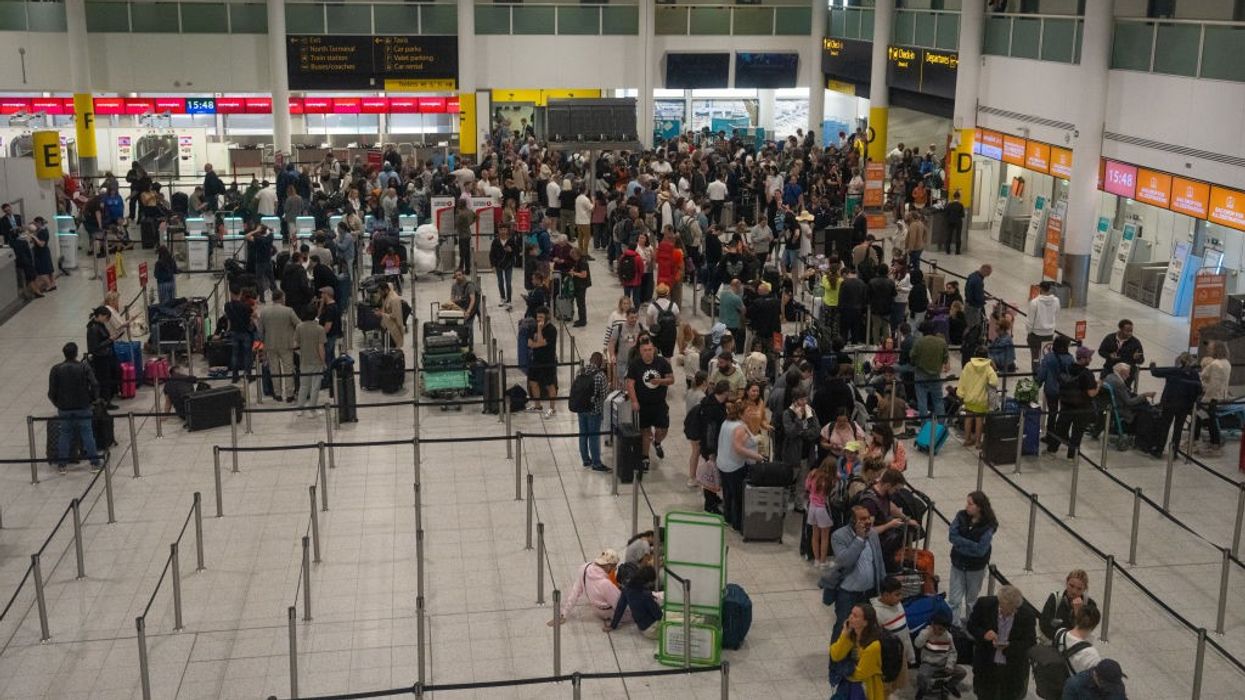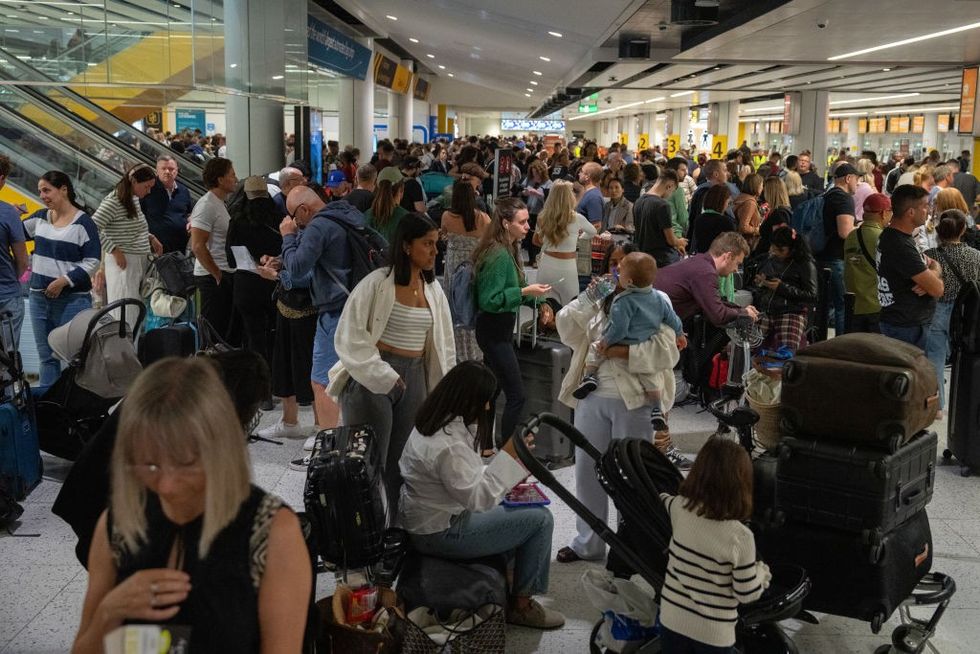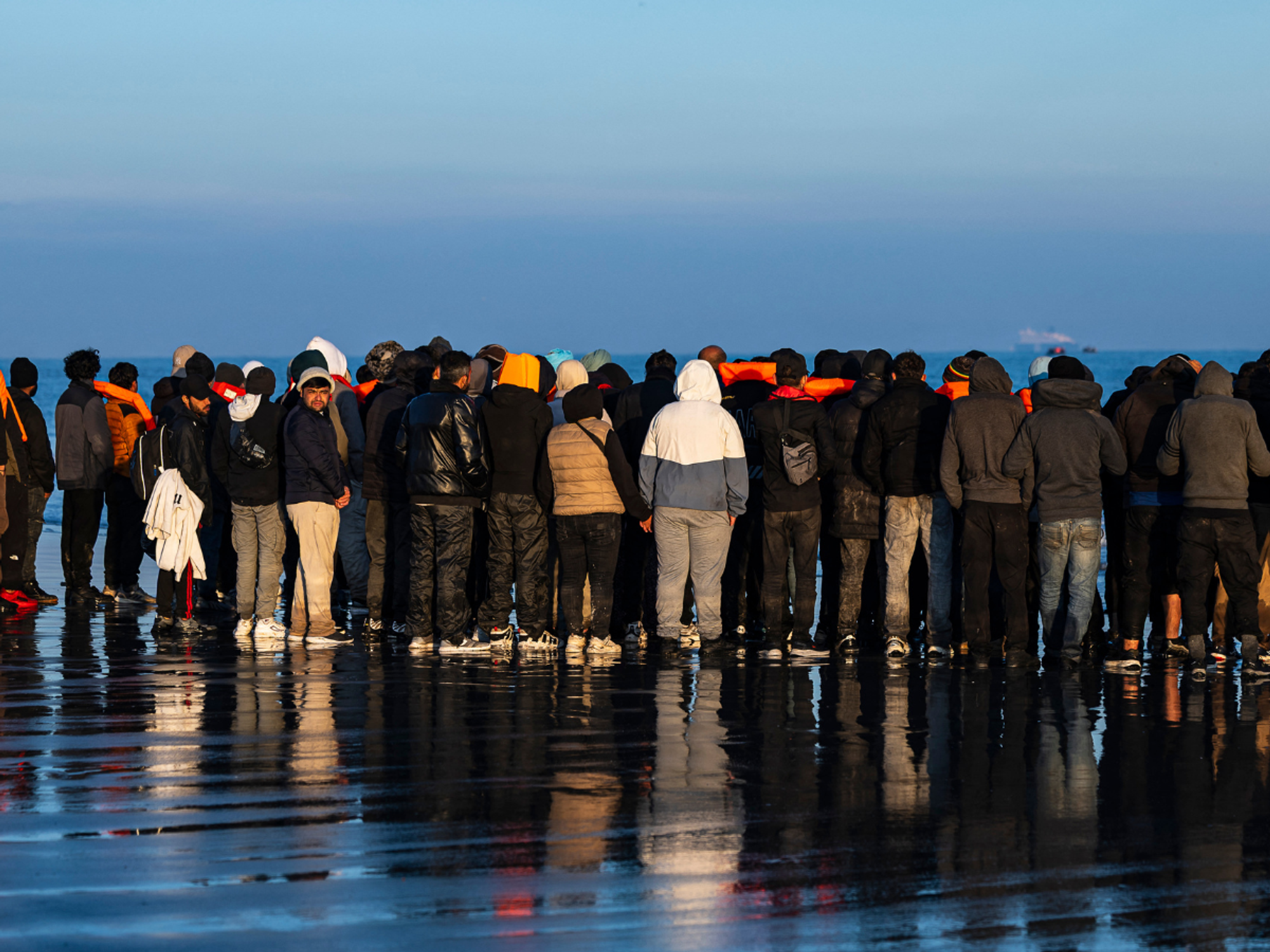Covid excuse rears its head again! Virus blamed for travel chaos at Gatwick airport

A third round of travel chaos at London Gatwick this month has been blamed on an outbreak of Covid
|Carl Court/ Getty

The airport claim the air-traffic control slowdown is due to staff sickness
Don't Miss
Most Read
A third round of travel chaos at London Gatwick this month has been blamed on an outbreak of Covid.
An air-traffic control slowdown is due to staff sickness according to the airport, which means the “flow rate” of flights using the runway was reduced.
Fifty flights to and from Gatwick were cancelled or diverted, while many other services were delayed by up to seven hours.
EasyJet saw the vast majority of cancellations with a total of 42.
WATCH: Gatwick restricts flights due to Covid
An estimated 8,000 passengers have been affected by the chaos, which has left many stranded.
Daniel Wilkes from Angus was booked on the 7.15pm flight from Gatwick to Edinburgh, but it was cancelled at 8.40pm.
"I just can’t believe the lack of contingency planning from Nats for staff sickness and that this is happening again," he told The Independent.
“Plus, airports and airlines have had quite a while to firm up their processes for cancellations, and yet always the poorly managed scrum ensues. Bizarrely, we were made to exit through border control. I didn’t even have my passport as it was a domestic flight.”
LATEST TRAVEL CHAOS:
A London Gatwick spokesperson said: “Due to short notice sickness in the air-traffic control tower including cases of Covid-19, temporary air traffic control restrictions were put in place yesterday.
"This caused some delays and cancellations by airlines.
“We worked hard to minimise disruption and we apologise for any inconvenience. The air-traffic control tower is fully staffed this morning.”
A spokesperson for Nats said: “We very much regret that some passengers experienced delays at Gatwick yesterday. This was due to short-notice staff sickness including some incidences of Covid.

An estimated 8,000 passengers have been affected by the chaos, which has left many stranded
|Carl Court/ Getty
“We did all we could to minimise disruption, working closely with the airport and airlines.
“We have worked very hard to increase the number of controllers, but it will take some time to build full resilience.
"It does mean, though, that short notice absences may lead to air-traffic control regulations being applied in order to maintain safety, and we are all very sorry for the impact this has.”









